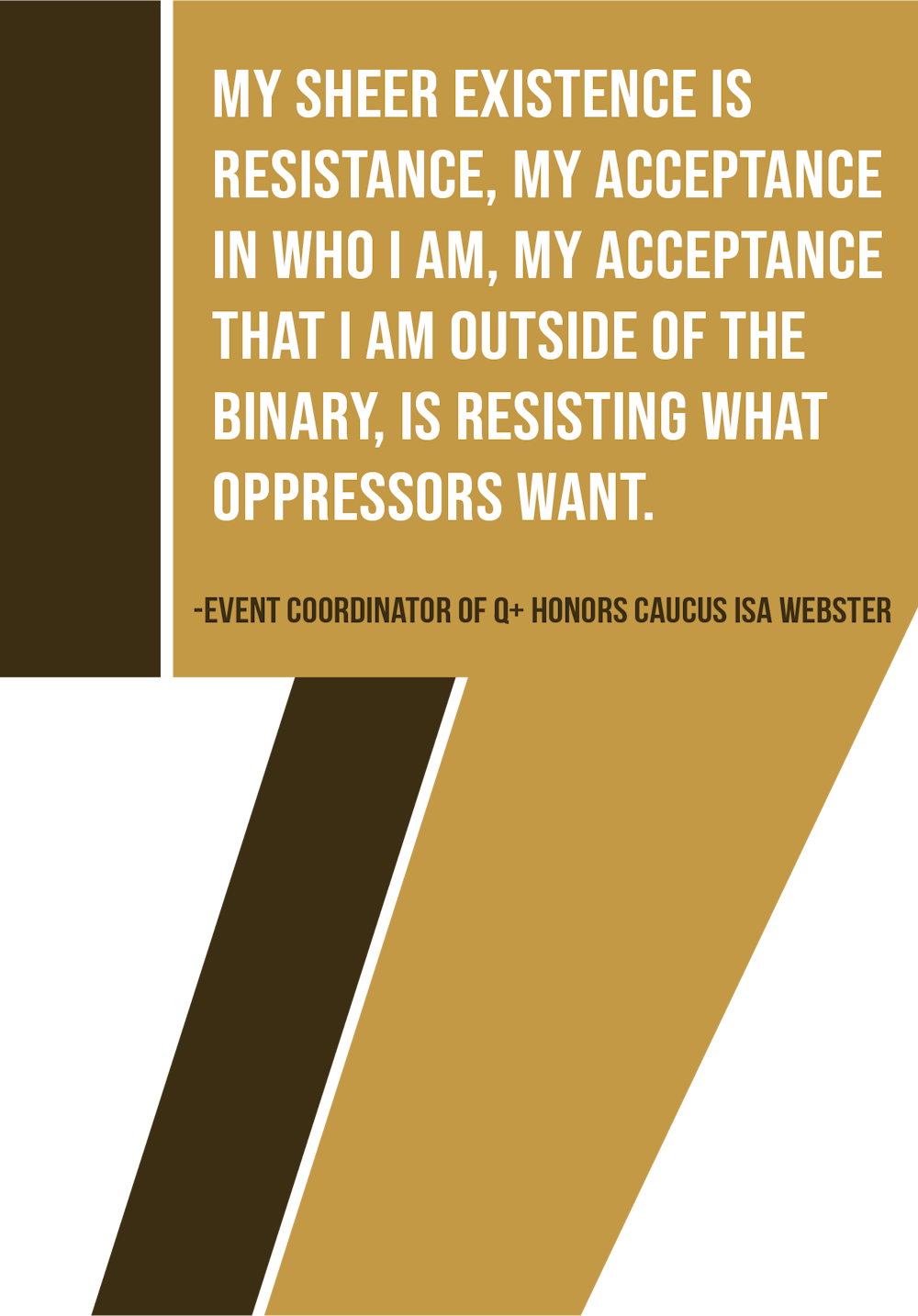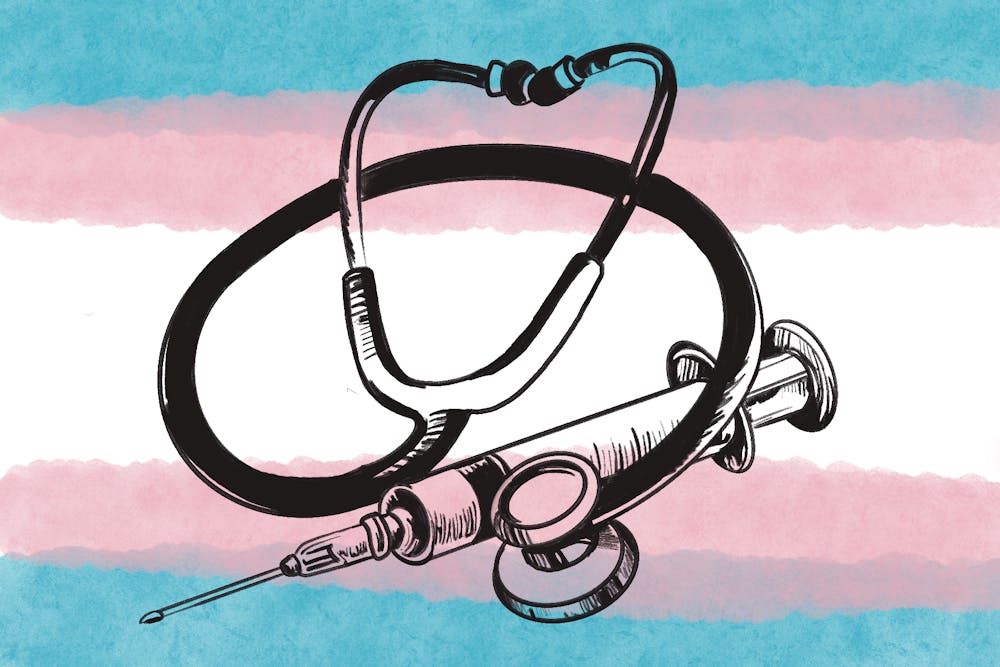A bill in South Carolina targets transgender and nonbinary individuals by banning gender affirming health care for minors as well as limiting access to care for those over 18.
This law went into effect this past summer and the effects have been amplified by recent executive orders signed by President Donald Trump that specially target this community.
H. 4626 specifically targets gender-affirming health care, which can include medicine, hormone replacement therapy and gender-affirming counseling. This law specifically bans this care for minors as well as banning doctors from assisting with gender affirming care due to a risk of losing their jobs.
“Quite frankly, I’m still shocked that we can talk about America and South Carolina being a place where we champion people’s individual liberties, and yet we are seeing this kind of level of unprecedented government overreach,” Isa Webster, the event coordinator of Q+ Honors caucus, said.
Q+ Honors caucus is a student organization that works to connect queer students within the honors college at USC, Webster said.
He said that this sends a harmful message about identity to younger generations as well.
“We’re effectively teaching our children that it isn’t okay to explore yourself. It isn’t okay to question outdated social constructs that you don’t fully understand or that don’t fully apply to you,” Webster said.
Clinics that have offered gender affirming care to adults have removed these treatments as this law bans public funds from going to hormones and surgeries for gender affirming care for individuals of all ages, according to the South Carolina Daily Gazette.
As a result of this removal of funding some clinics, specifically MUSC, the Medical University of South Carolina in Charleston has had to close down both their youth clinic and their adult clinic limiting care for all individuals, according to Christina Pacozzi, the executive director of the Harriet Hancock Center.
"We have 46 counties, we know that most of our counties are very rural," Pacozzi said, "You have to travel sometimes to go to a doctor and find a quality provider. And obviously there's intricacies in finding the right provider for you. This is now limiting your access to care."
While these orders are targeted at protecting youth by banning gender-affirming surgeries for minors, Pacozzi said that many transgender youths seek social affirmation rather than medical treatment. Though many youth don't want surgical treatment now, these laws can limit their access to care in the future because of these clinics closing, Pacozzi said.
“In many cases, they want to be socially affirmed. They want you to use their name. They want you to use their right pronouns. They want to be able to dress in a way that is affirming to them right now,” Pacozzi said.
Members of the transgender community feel confused and scared as a result of transgender individuals medical access being targeted, Bernie McIlnay, the development director of IRIS, said.
“I have heard from people in the community about how it has forced people to delay transitions,” McIlnay said.
The uncertainty around potential legal ramifications makes it difficult to access doctors who will help with transitions, which may have mental and emotional tolls those who are unable to get the medication they may be looking for, McIlnay said.
Webster shared similar views about the lack of trust in the government and overall uncertainty regarding current issues.
"They don't trust their government, they don't trust any sort of public institution now, and they feel frustrated and they feel disempowered," Webster said.
The law in South Carolina was one that specifically targeted transgender individuals, but the orders signed by Trump further the restrictions on trans and nonbinary individuals.
The amount of executive orders is meant to cause confusion, so it is difficult to understand what the orders enforce and what their goals are, McIlnay said.
"We're just in a state right now of confusion over the past two weeks about what does the future actually look like, what is going to be carried forward that we need to consider when it comes to things like gender affirming care, name changes, anything and everything that has to do with being trans," McIlnay said.

The executive orders Trump has signed targeting transgender and nonbinary individuals aim to limit access to gender affirming care, limit inclusion in schools and ban transgender individuals from participating in sports with their preferred gender.
“They’re not laws, and so we’re trying to make sure that people understand what are their rights and what can still happen,” Pacozzi said.
While there is a lot of uncertainty around what implications these laws have in the long run and what they mean for those who are within the targeted groups, there are bigger, lasting implications to recognize, Webster said.
A belief that Webster and McIlnay both emphasized was that despite these laws targeting transgender and nonbinary individuals, they will continue to be here.
"My sheer existence is resistance, my acceptance in who I am, my acceptance that I am outside of the binary, is resisting what oppressors want," Webster said.
The ACLU filed a suit in August of 2024 against the South Carolina law, but it is still in affect.

